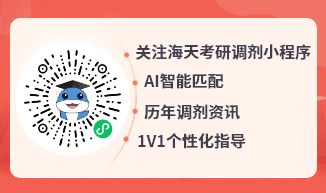考研英语冲刺:历年真题来源报刊阅读28
What do babies know?
As Daniel Haworth is settled into a high chair and wheeled behind a black screen, a sudden look of worry furrows his 9-month-old brow. His dark blue eyes dart left and right in search of the familiar reassurance of his mother’s face. She calls his name and makes soothing noises, but Daniel senses something unusual is happening. He sucks his fingers for comfort, but, finding no solace, his mouth crumples, his body stiffens, and he lets rip an almighty shriek of distress. Mom picks him up, reassures him, and two minutes later, a chortling and alert Daniel returns to the darkened booth behind the screen and submits himself to Babylab, a unit set up in 2005 at the University of Manchester in northwest England to investigate how babies think.
Watching infants piece life together, seeing their senses, emotions and motor skills take shape, is a source of mystery and endless fascination—at least to parents and developmental psychologists. We can decode their signals of distress or read a million messages into their first smile. But how much do we really know about what’s going on behind those wide, innocent eyes? How much of their understanding of and response to the world comes preloaded at birth? How much is built from scratch by experience? Such are the questions being explored at Babylab. Though the facility is just 18 months old and has tested only 100 infants, it’s already challenging current thinking on what babies know and how they come to know it.
Daniel is now engrossed in watching video clips of a red toy train on a circular track. The train disappears into a tunnel and emerges on the other side. A hidden device above the screen is tracking Daniel’s eyes as they follow the train and measuring the diameter of his pupils 50 times a second. As the child gets bored—or “habituated”, as psychologists call the process—his attention level steadily drops. But it picks up a little whenever some novelty is introduced. The train might be green, or it might be blue. And sometimes an impossible thing happens—the train goes into the tunnel one color and comes out another.
Variations of experiments like this one, examining infant attention, have been a standard tool of developmental psychology ever since the Swiss pioneer of the field, Jean Piaget, started experimenting on his children in the 1920s. Piaget’s work led him to conclude that infants younger than 9 months have no innate knowledge of how the world works or any sense of “object permanence” (that people and things still exist even when they’re not seen). Instead, babies must gradually construct this knowledge from experience. Piaget’s “constructivist” theories were massively influential on postwar educators and psychologists, but over the past 20 years or so they have been largely set aside by a new generation of “nativist” psychologists and cognitive scientists whose more sophisticated experiments led them to theorize that infants arrive already equipped with some knowledge of the physical world and even rudimentary programming for math and language. Babylab director Sylvain Sirois has been putting these smart-baby theories through a rigorous set of tests. His conclusions so far tend to be more Piagetian: “Babies,” he says, “know squat.”
考研词汇:
reassure[?ri:???u?]
vt.使……安心,再保证,使……恢复信心,打消……的疑虑
source[s?:s]
n.①源,源泉;②来源,出处
[真题例句] (73) Over the years, tools and technology themselves as a source (①) of fundamental innovation have largely been ignored by historians and philosophers of science.[1994年翻译]
[例句精译] (73)工具和技术本身作为根本性创新的源泉,多年来在很大程度上被历史学家和科学思想家们忽视了。
[真题例句] Strangers and travelers were welcome sources (②) of diversion, and brought news of the outside world.[1997年阅读2]
[例句精译] 陌生人和旅行者带来了娱乐消遣,还带来了外面世界的消息,因而他们很受欢迎。
scratch[skr?t?]
v.抓,搔,扒;n.①抓,搔,抓痕;②起跑线
[真题例句] Sad to say, this project has turned out to be mostly lowlevel findings about factual errors and spelling and grammar mistakes, combined with lots of headscratching (v.) puzzlement about what in the world those readers really want.[2001年阅读3]
[例句精译] 遗憾的是,这次新闻机构可信度调查结果只获得了一些肤浅的发现,诸如新闻报道中的事实错误,拼写或语法错误,和这些低层次发现交织在一起的还有许多令人挠头的困惑,譬如读者到底想读些什么。
facility[f??siliti]
n.①灵巧,熟练;②[pl.]设备,设施,便利条件
variation[?ve?ri?ei??n]
n.①变化,变动;②变种,变异
[真题例句] Today it makes almost no difference.Since much of the variation (①) is due to genes, one more agent of evolution has gone.[2000年阅读2]
[例句精译] 今日体重几乎不起什么作用,因为大部分差异是由基因引起的,又一个进化的因素消失了。
innate[?i?neit]
a.先天的,天生的
[真题例句] Its hero avoids being civilizedgoing to school and learning to read—so he can preserve his innate goodness.[2004年阅读4]
[例句精译] 该书(马克·吐温的小说《哈克贝利·芬》)的主人公逃避教化——不上学和不学习读书写字——因此他才得以保住善良的天性。
rigorous[?rig?r?s]
a.严格的,严厉的,严酷的,严峻的
[真题例句] Ralph Waldo Emerson and other transcendentalist philosophers thought schooling and rigorous book learning put unnatural restraints on children:“We are shut up in schools and college recitation rooms for 10 or 15 years and come out at last with a bellyful of words and do not know a thing.”[2004年阅读4]
[例句精译] 拉尔夫·瓦尔多·爱默生和其他一些先验主义哲学家认为学校教育和严格的书本学习限制了孩子们的天性,“我们被关在中小学和大学的朗诵室里十年或十五年,最后出来满肚子墨水,却啥都不懂。”
背景常识介绍:
儿童生长是受先天的因素驱动,还是环境造就的?儿童是主动地塑造自我,还是被动地?这些关于儿童发育变化的问题,一直争论不休。回答儿童变化的问题就是在研究发育的过程和特点。现代西方哲学在批判逻辑经验主义的基础主义认识论的过程中,出现了一股自然主义认识论潮流。皮亚杰强调心理学研究的认识论意义,从一个侧面体现了这一思潮的致思趋向。他认为,心理学作为认识发展的胚胎学,不仅为揭示认识发展的机制,而且为阐明科学范畴的起源和发展,提供了一把钥匙。皮亚杰的这些思想,对于深化认识论的研究,有着积极的意义。
参考译文:
婴儿知道什么?
当九个月大小的Daniel Haworth被放置在一个黑色的屏幕后的一个有轮的高高的椅子里的时候,他的小眉头微微皱起,表情忧虑。他深蓝色的眼睛迅速的左顾右盼,想寻找他所熟悉的妈妈的面孔。小丹尼尔的妈妈呼唤他的名字,并且,发出一些哄他平静下来的声音,但是,小丹尼尔感觉有什么不寻常的事情正在发生。他吸吮他的手指寻求安慰,但是这毫无用处,他开始瘪嘴,身体变得僵硬,然后,他发出一阵拼尽全力的表达难过的尖叫。丹尼尔的妈妈抱起他,安抚他,两分钟后,他开始咯咯地笑,并且对屏幕后面那个黑色平台保有戒备,但是还是顺从了婴儿实验室,这个实验机构2005年在英国西北部的曼彻斯特大学成立,负责调查研究婴儿是如何思考的。
把对婴儿的零散的生活的观察合在一起,你会发现,他们的思维、情绪和动机正在形成,这是一件提示神秘的根源和发现无数的令人着迷东西的事情——至少对于他们的父母,还有发展心理学家们是如此。我们能够明白他们表现出的什么样的信号表示不高兴,能够从他们的第一次微笑读出无数信息。但是,在他们大大的、天真的眼睛后面隐藏着些什么样的思维过程,我们对此又真正了解多少呢?他们对这个在他们出生前就存在的世界,有着什么样的理解又会作出什么样的反映呢?在完全空白的基础上,有多少理解是通过经验建立起来的?这些都是婴儿研究室正在研究的问题。虽然研究的对象只有18个月大,并且,他们仅仅只以100个婴儿为对象做了试验,但是,所得出的结论已经对现存的对于婴儿的思维以及他们是怎么样思维的观点提出了怀疑。
小丹尼尔现在正在全神贯注的看一个红色的玩具火车在轨道上行使的录像剪辑。火车在隧道里消失,又从另一端出现。在屏幕上方有一个隐藏的装置,在小丹尼尔的眼睛跟随火车的运动时,跟踪他的眼睛,并且在一秒钟内,测量了他的瞳孔的直径50次。 当这个孩子感到厌烦,或者说,习惯时——这也就是心理学家称作的推移——他们的注意力水平会稳步下降。但是,有一点点新奇出现的时候,他们的注意力又会上升一点,比如,火车也许会变成绿色或者蓝色,有时候火车进入隧道的时候是一种颜色,从另一端出来的时候,却是另一种颜色。
自从二十世纪二十年代,婴儿的意识研究这个领域的先驱瑞士的皮亚杰开始在他自己的孩子们中进行实验以来,像这种类似的各种各样旨在检测婴儿的注意力的试验已经成为发展心理学研究的标准手段。皮亚杰的实验使他得出了这样的结论:小于9个月大的婴儿对于这个世界是什么样子以及“永久事物”意识还没有本能的认识。而婴儿应当是在经验中逐渐建立起这种认识。皮亚杰的“建构主义”理论对战后的教育家和心理学家影响非常深远,但是,在过去的20多年中,他们大部分被新产生的一代“先天论”心理学家和认识科学家****。这新生的一代“先天论”者通过更加成熟的实验得出的结论是:婴儿天生就对自然界有一定的认识,甚至,对数学和语言有一定的基本的解读。婴儿实验研究室的主任Sylvain Sirois已经在使这些“聪明宝宝理论”通过一系列严格的测试。他的结论越来越倾向皮亚杰理论。“婴儿知道占有。”Sylvain Sirois表示。
2024考研人数已公布,达438w,考研热度依旧火热!如何备战2025考研?哪个考研专业适合自己?在职考生如何备考?考研知识点繁多,择校困难大,和海天考研咨询老师聊一聊。网课面授多项选,专业辅导1对1,全年集训随时学!







